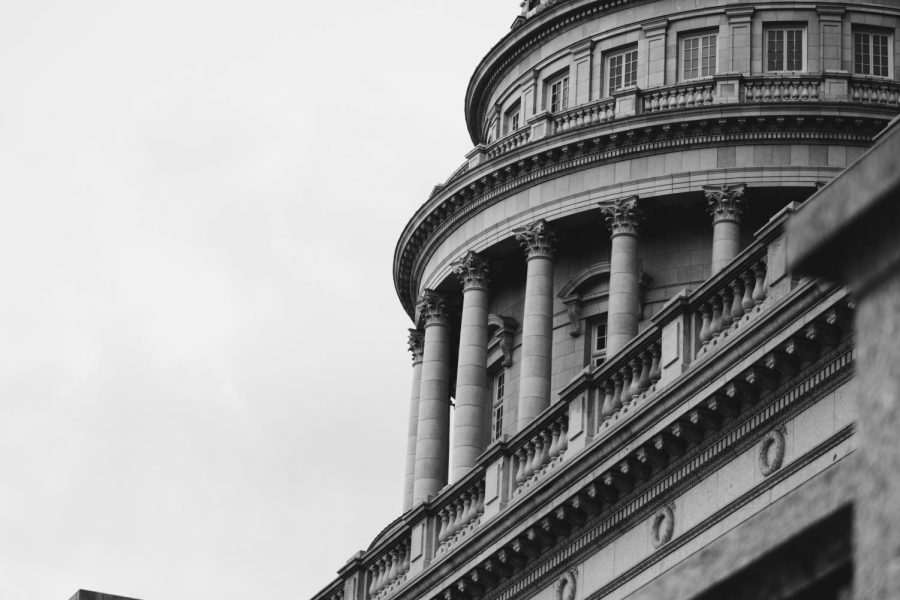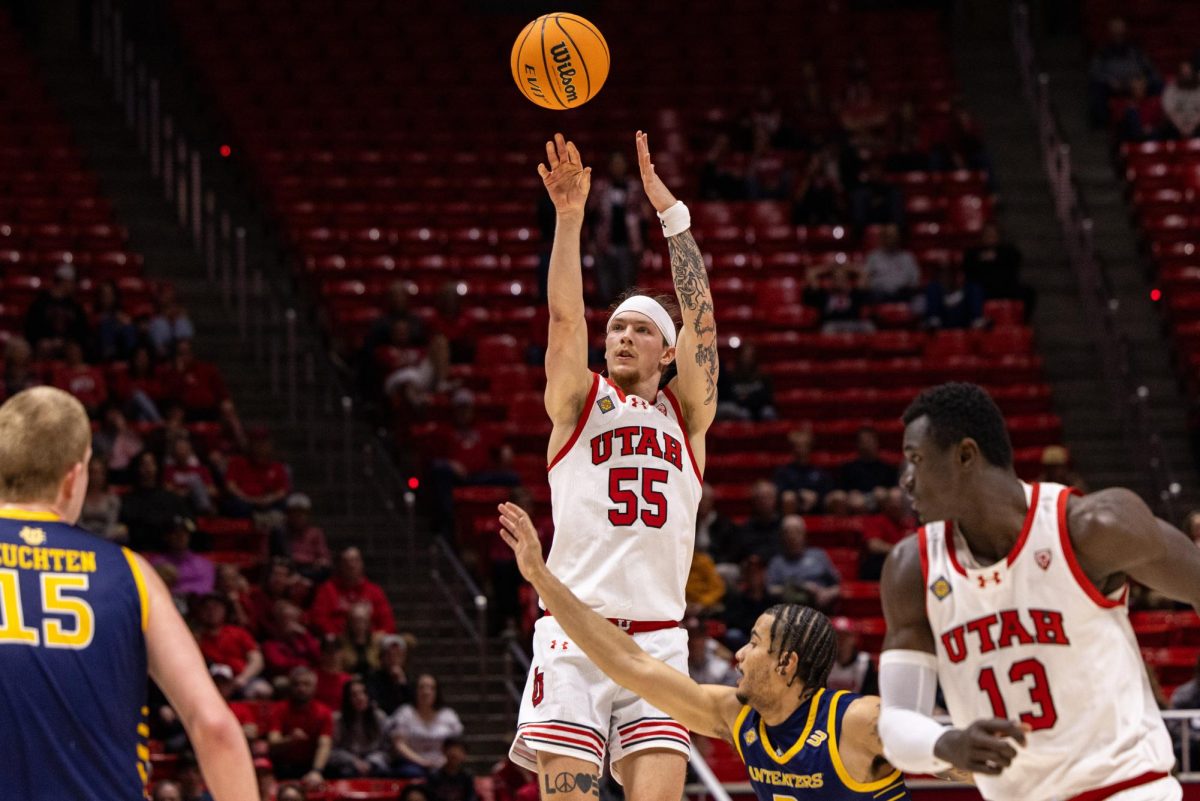Cushman & Langley: Prioritize Utah’s Environment at the Polls
The Utah State Capitol Rotunda on Friday, Feb. 12, 2020. (Photo by Mark Draper | Daily Utah Chronicle)
November 1, 2022
In the summer of 2020, Salt Lake City ranked fourth for worst air quality in the world. Our little state was among some of the most densely populated and polluted regions, despite being home to just over 3 million people.
While this event may seem like an anomaly, dangerous environmental conditions have become more and more common in Utah. The worsening climate situation affects our economy, wildlife and health. Utahns need representatives and local public officials who will focus on creating a healthier environment and support Utah’s fast-growing population. Voters must unite around the environment to choose candidates with strong climate policies.
Air: Utah’s New Choking Hazard
Salt Lake City is known for terrible inversions, which naturally occur due to the valley’s geography. But our pollution makes them far worse — the unhealthy and cancerous gasses and particles that typically drift away into the atmosphere become trapped.
Despite the state’s air pollution record, the Utah Legislature passed the inland port project without the consent of Utah voters or Salt Lake City. The port will increase automobile use, exacerbate poor conditions and set a precedent for future encroachments upon the equal right to a clean environment. On top of that, the pollution from the port will disproportionately affect diverse and lower-class communities.
In addition, forest fires significantly worsen air quality, even from several states away. While citizens can prevent forest fires, we need direct government action to make a real change to air quality before it’s too late.
Water, or a Lack Thereof
Air is not Utah’s only issue. Due to massive droughts and the Colorado River drying up, our state needs to conserve water, yet there hasn’t been much direct action. If anything, our actions seem to ensure the lake’s death: water that would have gone to the Salt Lake is diverted to farmlands that grow alfalfa, a highly thirsty plant. The lack of water in the lake not only disrupts the lives of local wildlife, but exposes an extraordinary amount of toxic dust. It is only a matter of time before a great disaster occurs.
In addition, over half of our outdoor water use is related to maintaining grass-covered lawns. Half of that water usage is wasted due to run-off and evaporation. While the widespread use of grass in the West can be aesthetically pleasing to some, it harms the overall stability of the place we call home.
What This Means for Utah Voters
When voting for Congressional leaders, only 9% of Utah voters listed the environment as their most important issue. But given the dire state of the environment and the potential consequences for our health and quality of life, we need to prioritize it. We need leaders who will look out for our health and the long-term sustainability of our state. And this November, we have the opportunity to choose them.
Voting for candidates that support environmental protection and climate policy isn’t as simple as Republicans versus Democrats. For example, both candidates running for a Salt Lake County Council seat have a history of positive climate action. Democrat Suzanne Harrison sponsored legislation to offer a tax credit for electric vehicles, launched tier3gas.org to help Utahns find cleaner gas and co-chaired Utah’s Clean Air Caucus for four years. She has affirmed her commitment to continuing that work if she wins. But running against her is Republican Richard Snelgrove, who sponsored a resolution for the County Council to take action regarding the Great Salt Lake and planned Salt Lake County’s participation in free fare February. If he wins, he plans to expand no-fare UTA and wildfire mitigation to protect air quality.
Unfortunately, climate policy isn’t always evenly divided. Looking at another race, Rep. John Curtis has been outspoken about his desire to find climate solutions, and voices that conservatives can care about the environment without sacrificing their values. However, this November Curtis is running against Glenn Wright in Utah’s 3rd Congressional District. Wright has praised Curtis on climate policy but advocates for a more aggressive approach. Utah voters should look for candidates like Wright — leaders willing to focus on our climate as a priority issue and take aggressive action. Our climate is running out of time, and we need candidates who take that ticking clock seriously.
In the headline-catching Mike Lee v. Evan McMullin race for one of Utah’s senate positions, McMullin stands out with a list of plans for protecting our air and water. Lee, on the other hand, believes that the free market will lead to solutions to “keep our environment clean.” He’s also said in the past that getting married and having children would help solve climate change. Utahns have a choice between McMullin, who has actual specific policies to address the climate issues we’re facing, or Lee, who doesn’t acknowledge the problem with any degree of seriousness.
Before going to the polls, we implore Utah voters to look at their ballots and examine which candidates plan to take action to protect our climate and our health. We face a future of toxic air and a water crisis, and we’re beginning to see those problems now. Without drastic action, these problems are set to get worse. This November, let’s cast our votes to make a difference in our environment for us and future Utahns.









